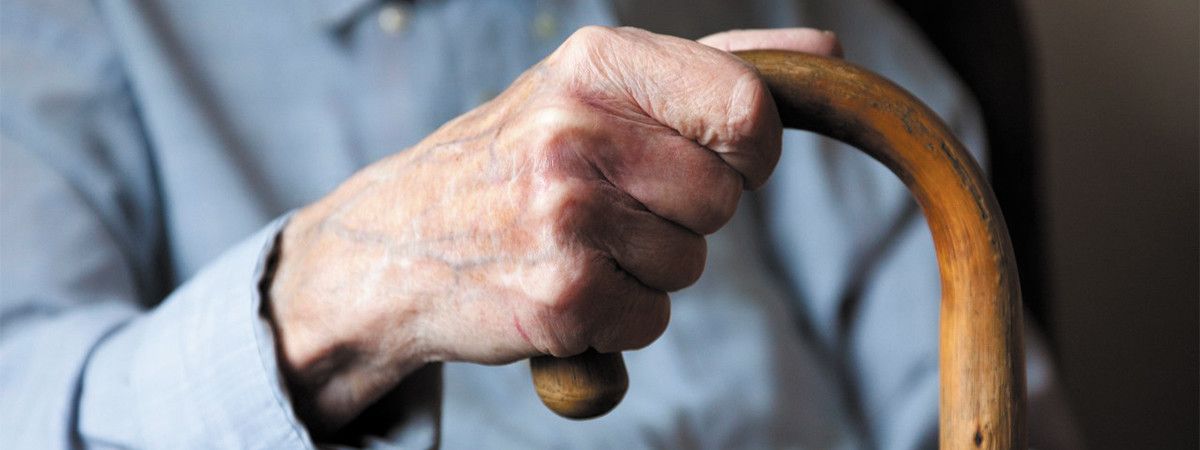
DEAR LIFE
Correspondence
Karen Hitchcock is a powerful advocate for the transformation of the Australian health system. Most of us are aware of the much-cited 2015 Intergenerational Report, which documented the unsustainability of our public and private health systems by projecting the rising funding requirements of new technology and treatments, as well as the needs of our ageing population. In his foreword to the report, the Federal Treasurer noted, “With a growing population that will live longer, the Intergenerational Report shows the growth in the costs of many services, especially in health, that will put pressure on the budget and threaten the sustainability of those services.”
In recent weeks, the Australian Medical Association has warned of a potential “perfect storm” in Australia’s public hospital system, with the states and territories facing a huge black hole in public hospital funding after a succession of Commonwealth cuts, resulting in hospitals and their staff being placed under enormous stress, and patients being forced to wait longer for their care.
In response to this AMA snapshot, Minister for Health Sussan Ley said she was committed to working with state and territory governments to deliver a more efficient hospital system: “Let’s get the best bang for our dollar, wherever it goes. Unsustainable health spending will cause Australians more harm than good in the long run. These decisions are never easy or popular.”
Conversations on health reform often focus on providing system-wide coordinated care, especially for high utilisers with chronic disease, to keep people out of hospital. As a general practitioner and advocate for patient-centred care, preventive health strategies and strong primary health care, I have been involved in such discussions with government for over thirty years. I am well aware of the statistics that show most health-care dollars are spent in the last year of life, especially in the last thirty days of someone’s life in hospital, as they are frequently cited as evidence of inappropriate medical treatment. Like Hitchcock, I recognise two related narratives that are usually unspoken, but which frequently underpin conversations about aged care in hospital settings: “The first is that medicine is keeping elderly patients alive against their will – medicine is denying a death that the patient desires. The second is that elderly patients are seeking to stay alive unreasonably – the patient (or their family) is denying an unavoidable death.”
Clearly, ageism or any other form of discrimination has no place in medicine or in our community. So we must examine whether hospital funding cuts inadvertently result in detrimental outcomes for certain groups of patients. For example, “medical treatment futility” is a difficult ethical dilemma that has been described by some cynics as a smoke-screen to hide rationing of end-of-life care. The decision of what constitutes futile care for an individual patient is even more difficult when patients, families, clinicians and ethical committees disagree with each other. At the coalface of clinical care, the focus should obviously be on a high standard of care that is in the best interests of the patient; care is never futile, but medical treatments sometimes are.
For all these reasons, Advance Care Planning Australia advocates that everyone over the age of eighteen consider discussing an advanced care plan with their doctor to prevent inappropriate end-of-life decisions. Such a plan may be reviewed, changed or revoked, but this is a difficult process in hospital wards that are “overstretched, underfunded and caring for too many patients with a skeleton staff.” As Hitchcock concludes: “All we can hope for is that people with an advanced illness have ongoing discussions with that doctor or family or enduring power of attorney about their changing goals and values, so that these may be taken into account when treatment decisions arise.”
Currently about half the patients in an acute hospital are over the age sixty-five. In response, a number of frameworks and models have been recommended, including acute care of the elderly units and general medical wards for every hospital, as these generalist environments have been shown to result in better, more patient-focused outcomes. However, the level of investment in these evidence-based models across the country varies, largely due to the dominant view that hospital is “no place for the elderly.”
All governments and their health bureaucracies must take note of the groundswell of community support for the solutions put forward by Hitchcock. Through the voices of her elderly patients, Hitchcock has built a strong case for health-system transformation. Better care, not less care.
Unfortunately the present federal government has cut millions of dollars of funding from hospital budgets. Sussan Ley has now said she will consult with the medical profession to identify patient over-servicing, duplication, inefficiency and other forms of “waste” and inappropriate medical practice, with a focus on shifting expensive inpatient hospital care to the outpatient setting. In this consultation between government and the medical profession, the questions raised by Hitchcock in her essay must also be addressed, to ensure there is no unintended rationing of hospital and out-of-hospital services for our most vulnerable patients.
Dear Life is not a comfortable read. Many people may feel challenged by matters to do with end-of-life care that are easier left unspoken. But the essay concerns all of us and as Hitchcock says, “it’s confronting and terrifying to see one’s own future up close like this.”
Leanne Rowe
CONTINUE READING
This is a reply to Karen Hitchcock’s Quarterly Essay, Dear Life: On caring for the elderly. To read the full essay, login, subscribe, or buy the book.
ALSO FROM QUARTERLY ESSAY










